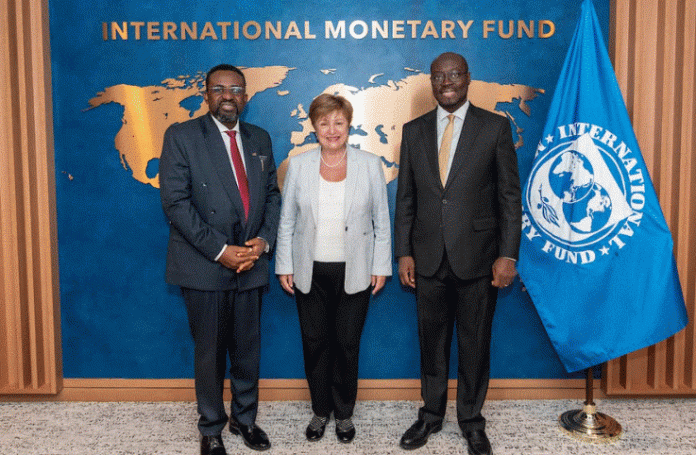An International Monetary Fund staff mission will arrive in Accra by end of September 2025 for Ghana’s fifth review under the $3 billion Extended Credit Facility, with $360 million in funding at stake pending successful completion.
The mission will examine Ghana’s economic performance through June 2025, focusing on inflation trajectory, foreign reserve sustainability, government arrears audit progress, and private sector bank recapitalization challenges. If Ghana passes the review, it will receive approximately $360 million in October 2025, bringing total program receipts to around $2.7 billion.
The mission follows the IMF Executive Board’s completion of the fourth review on July 7, 2025, which approved a disbursement of approximately $367 million (SDR 267.5 million), bringing Ghana’s total receipts to $2.3 billion. The successful fourth review demonstrated Ghana’s continued progress under the economic stabilization program.
Key areas under scrutiny include Ghana’s inflation performance against program targets and the sustainability of foreign exchange reserve accumulation. The mission will also assess progress on the comprehensive audit of government arrears and evaluate the financial health of private sector banks requiring recapitalization support.
The timing proves critical for Ghana’s economic stabilization efforts as the country works to restore macroeconomic stability and rebuild investor confidence. Growth in 2024 and the first quarter of 2025 exceeded expectations, reflecting robust performance in mining, agriculture, ICT, and construction sectors.
Market analysts remain cautiously optimistic about Ghana’s reform trajectory while expressing concerns about maintaining fiscal discipline beyond the program period. The IMF has commended Ghana’s policy reforms aimed at restoring macroeconomic stability, though sustainability questions persist.
The review process involves comprehensive assessment of fiscal performance, debt dynamics, and structural reform implementation. Mission staff will examine budget execution data, revenue collection trends, and expenditure patterns to evaluate Ghana’s adherence to program commitments.
Private sector banking stability represents a particular focus area given ongoing recapitalization requirements. The mission will assess banks’ capital adequacy ratios and evaluate progress toward meeting regulatory standards that support financial sector stability.
Foreign exchange reserves have shown improvement under the program, but the mission will evaluate whether recent gains reflect sustainable trends or temporary factors. Reserve adequacy remains crucial for maintaining exchange rate stability and supporting import financing.
The government arrears audit continues as a key program requirement, with the mission examining progress toward quantifying and addressing legacy payment obligations. Successful arrears resolution supports fiscal credibility and private sector confidence.
Ghana’s performance under the three-year Extended Credit Facility has generally exceeded expectations despite occasional implementation challenges. The program aims to restore fiscal sustainability, rebuild foreign exchange buffers, and establish foundations for sustained economic growth.
The fifth review represents a significant milestone toward program completion, with the final sixth review scheduled for April 2026. Successful completion of remaining reviews would demonstrate Ghana’s commitment to comprehensive economic reforms and fiscal responsibility.
International financial markets continue monitoring Ghana’s reform progress as the country works to regain access to international capital markets. Program success could facilitate Ghana’s eventual return to voluntary market financing at sustainable interest rates.
The October disbursement, if approved, will provide crucial foreign exchange support during a period when Ghana seeks to strengthen its external position. The funding supports both balance of payments financing and budget support for essential government operations.
As Ghana approaches the program’s final phase, maintaining reform momentum becomes increasingly important for ensuring lasting economic stability beyond IMF support. The fifth review will provide important insights into the country’s readiness for eventual program graduation.
